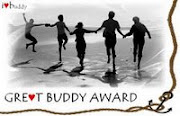
THE LAST WAR
The first country to die was normal in the evening,
Ate a good but plain dinner, chatted with some friends
Over a glass, and went to bed soon after ten;
And in the morning was found disfigured and dead:
That was a lucky one.
At breakfast the others heard about it, and kept
Their eyes on their plates. Who was guilty? No one knew,
But by lunch-time three more would never eat again.
The rest appealed for frankness, quietly cocked their guns,
Declared "This can't go on."
They were right. Only the strongest turned up for tea:
The old ones with the big estates hadn't survived
The slobbering blindfold violence of the afternoon.
One killer or many? Was it a gang, or all-against-all?
Somebody must have known.
Each of them sat there watching the others, until
Night came and found them anxious to get it over.
Then the lights went out. A few might have lived, even then;
Innocent, they thought (at first) it still mattered what
You had or hadn't done.
They were wrong. One had been lenient with his servants;
Another ran an island brothel, but rarely left it.
The third owned a museum, the fourth a remarkable gun;
The name of the fifth was quite unknown, but in the end
What was the difference? None.
Homicide, pacifist, crusader, cynic, gentile, jew
Staggered about moaning, shooting into the dark.
Next day, to tidy up as usual, the sun came in
When they and their ammunition were all used up,
And found himself alone.
Upset, he looked them over, to separate, if he could
The assassins from the victims, but every face
Had taken on the flat anonymity of pain;
And soon they'll all smell alike, he thought, and felt sick,
And went to bed at noon.
--Kingsley Amis (b. 1922)
.



















 \
\










